This comprehensive text provides fundamental and broad knowledge about strategic management and policy. It offers a thorough, state-of-the-art treatment of the critical business skills that are required to plan and manage strategic activities and business policies in todays corporate world. It introduces the readers to the various tools and techniques being used by the firms competing in the national, as well as in the global economy. The book has been enriched with examples and brief descriptions given as Strategic Memo in each chapter. The case studies given at the end of the book can be used to teach and discuss a comprehensive
Strategic Management
KSh 1,295.00
This comprehensive text provides fundamental and broad knowledge about strategic management and policy. It offers a thorough, state-of-the-art treatment of the critical business skills that are required to plan and manage strategic activities and business policies in todays corporate world. It introduces the readers to the various tools and techniques being used by the firms competing in the national, as well as in the global economy. The book has been enriched with examples and brief descriptions given as Strategic Memo in each chapter. The case studies given at the end of the book can be used to teach and discuss a comprehensive
1 in stock
Related products
-
Strategic Management and Business Policy: Globalization, Innovation and Sustainability, Global Edition
KSh 14,000.00For courses in Strategic Management and Business Policy.
Utilize a strategic management model to learn and apply key concepts through cases
Picking up where the popular previous editions left off, Strategic Management and Business Policy: Globalization, Innovation and Sustainability, 15th Edition further sharpens and modernizes this classic text’s approach to teaching strategy with an emphasis on globalization, innovation, and sustainability. Throughout, the authors equip students with the strategic concepts they will need to know as they face the issues that all organizations must build upon to push their businesses forward. In this edition, Alan Hoffman and Chuck Bamford bring a fresh perspective to this extraordinarily well-researched and practically crafted lesson. Also included is a new chapter on Global Strategy, along with new vignettes and comprehensive, real-world case studies.
Pearson MyLabTM Management not included. Students, if Pearson MyLab Management is a recommended/mandatory component of the course, please ask your instructor for the correct ISBN and course ID. Pearson MyLab Management should only be purchased when required by an instructor. Instructors, contact your Pearson rep for more information.
Pearson MyLab Management is an online homework, tutorial, and assessment product designed to personalize learning and improve results. With a wide range of interactive, engaging, and assignable activities, students are encouraged to actively learn and retain tough course concepts.
Features
This title is a Pearson Global Edition. The Editorial team at Pearson has worked closely with educators around the world to include content, which is especially relevant to students outside the United States.
Focus on globalization, innovation, and sustainability
· NEW! A completely new chapter on Global Strategy has been added. While globalization is discussed in every chapter of the book, including a Global Issues section in each chapter, this stand-alone chapter addresses the key issues of entry, international coordination, stages of international development, international employment, and measurement of performance.
· NEW! and UPDATED! Vignettes on sustainability, globalization, and innovation appear in every chapter of the text.
· UPDATED! Every example, chapter opening, and story has been updated. This includes chapter-opening vignettes examining companies such as Tesla, Pizza Hut, KTMrcher, Toyota, Purbani Group, and United Airlines, among many others
-
Blue Ocean Strategy, Expanded Edition: How to Create Uncontested Market Space and Make the Competition Irrelevant
KSh 3,205.00In this perennial best seller, embraced by organizations and industries worldwide, globally preeminent management thinkers W. Chan Kim and Renee Mauborgne challenge everything you thought you knew about the requirements for strategic success. Recognized as one of the most iconic and impactful strategy books ever written, Blue Ocean Strategy, now updated with fresh content from the authors, argues that cutthroat competition results in nothing but a bloody red ocean of rivals fighting over a shrinking profit pool. Based on a study of 150 strategic moves (spanning more than 100 years across 30 industries), the authors argue that lasting success comes not from battling competitors but from creating “blue oceans” – untapped new market spaces ripe for growth.
Blue Ocean Strategy presents a systematic approach to making the competition irrelevant and outlines principles and tools any organization can use to create and capture their own blue oceans. This expanded edition includes: a new preface by the authors: “Help! My Ocean Is Turning Red”; updates on all cases and examples in the book; and two new chapters and an expanded third one – “Alignment, Renewal, and Red Ocean Traps” – that address some of the most pressing questions listeners and readers have asked over the years.
-
Get Hired Fast! Tap the Hidden Job Market in 15 Days Paperback
KSh 995.00You lost your job six months ago. You’ve emailed 90 resumes. You’ve scoured the job boards and the help wanted ads. You’ve called recruiters, old bosses, former coworkers…but nothing. You’re scared. You’re beginning to think there are no jobs out there. But there ARE jobs. And you can get one of them–if you’re willing to try the job search technique that most people are too timid to try.
If you’re one of 9 million Americans looking for a job, you don’t want to go 12 to 24 months without a job offer (as many do). The trick is to tap into the hidden job market–where 90 percent of the jobs really are!
Get Hired FAST! shows you how to use a direct-calling strategy that will generate at least three interviews in three weeks. It gives you a 15-day Action Plan, complete with charts, scripts, and other tools that will enable you to use the direct-calling technique like a professional.
This no-holds-barred book also includes insider advice on how to ace the interview once your calling strategy pays off, negotiate the best offer, and keep the job once you get it.
Get Hired FAST! shows you where and how to identify key contacts in target companies, how to uncover crucial data about target companies, how to script calls to hiring managers in advance–and handle any scenario, from voicemail to conversations with contacts’ staffers.
-
How Brands Become Icons: The Principles of Cultural Branding
KSh 2,795.00Coca-Cola. Harley-Davidson. Nike. Budweiser. Valued by customers more for what they symbolize than for what they do, products like these are more than brands–they are cultural icons. How do managers create brands that resonate so powerfully with consumers? Based on extensive historical analyses of some of America’s most successful iconic brands, including ESPN, Mountain Dew, Volkswagen, Budweiser, and Harley-Davidson, this book presents the first systematic model to explain how brands become icons. Douglas B. Holt shows how iconic brands create “identity myths” that, through powerful symbolism, soothe collective anxieties resulting from acute social change. Holt warns that icons can’t be built through conventional branding strategies, which focus on benefits, brand personalities, and emotional relationships. Instead, he calls for a deeper cultural perspective on traditional marketing themes like targeting, positioning, brand equity, and brand loyalty–and outlines a distinctive set of “cultural branding” principles that will radically alter how companies approach everything from marketing strategy to market research to hiring and training managers. Until now, Holt shows, even the most successful iconic brands have emerged more by intuition and serendipity than by design. With How Brands Become Icons, managers can leverage the principles behind some of the most successful brands of the last half-century to build their own iconic brands. Douglas B. Holt is associate professor of Marketing at Harvard Business School.
-
How the World Sees You: Discover Your Highest Value Through the Science of Fascination
KSh 2,995.00Unlock your unique strengths with How the World Sees You. Learn the science of fascination to maximize your personal brand and highest value.
Sally Hogshead believes the greatest value you can add is to become more of yourself.
Hogshead rose to the top of the advertising profession in her early 20s, writing ads that fascinated millions of consumers. Over the course of her ad career, Sally won hundreds of awards for creativity, copywriting, and branding, and was one of the most awarded advertising copywriters right from start of career, including almost every major international advertising award.
She frequently appears in national media including NBC’s Today Show and the New York Times. Hogshead was recently inducted into the Speaker Hall of Fame, the industry’s highest award for professional excellence. Her advertising work hangs in the Smithsonian Museum of American History.
The science of fascination is based on Hogshead’s decade of research with 250,000 participants, including dozens of Fortune 500 teams, hundreds of small businesses, and over a thousand C-level executives.
-
How to Make the Most of Your Workday
KSh 890.00This revised and updated edition of How to Make the Most of Your Workday will help you learn how to work smarter, not harder. It is packed with tools, techniques, advice, and activities to help you permanently change the way you work and live.
This book will also show you:
-Why you aren’t getting things done and how you can change this.
-How to reduce daily stress and anxiety.
-How to create more leisure time.
-How to mange your time, prioritize you list, meet your goals, and make all your efforts more successful and rewarding.
-How to conquer one of today’s major productivity killers-procrastination-once and for all. -
101 Learning and Development Tools: Essential Techniques for Creating, Delivering and Managing Effective Training – Softcover
KSh 8,740.00101 Learning and Development Tools is your practical guide to all the most up-to-date training techniques, organized around the classic learning and development cycle. Whether you need a quick, ready solution or some guidance on where to go for in-depth information, this is your essential reference guide. It picks up from where you are in the process of managing learning, and helps you place it in a broader context.
Each chapter is a mini guide to each tool with:
-a description of the tool
-analysis
-resources needed
-cost implications
-cross-references to help you identify alternative or related tools
-suggestions for further study or investigation101 Learning and Development Tools is the indispensable all-in-one-volume reference book for both professionals in the field and students learning about the subject.
-
Kick Start Your Business ;100 Days to a Leaner, Fitter Organization
KSh 1,395.00Find out how to identify a company’s strengths and weaknesses and take the next step to make a business work smoothly. This guide identifies the essential tools to get a business to work better, offers hundreds of ideas and examples to turn your business into a powerhouse, includes useful resources and contacts, and provides worksheets to kick start your business.

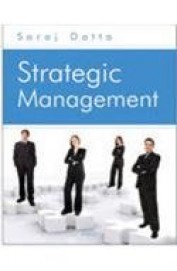

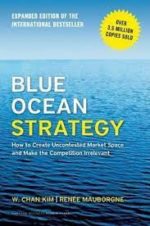
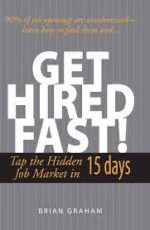
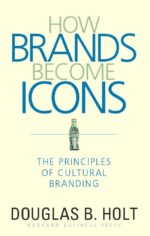
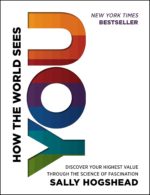



Be the first to review “Strategic Management”